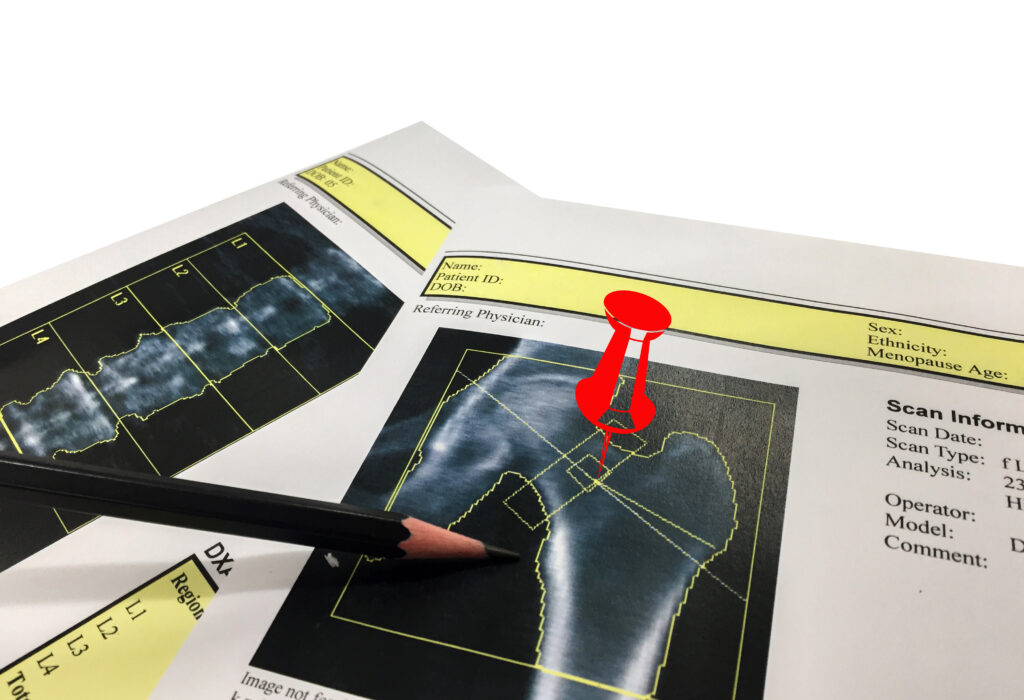Bone Health
Why DEXA Scans are So Essential for Measuring Bone Building Success
DEXA scans are one of the most powerful tools available for accurately assessing bone density, making them essential for tracking the success of any bone-building program. Whether you’re incorporating more calcium into your diet, adjusting your fitness routine, or optimizing sleep and recovery, having a reliable way to monitor bone changes over time is key—and DEXA scans provide just that.

What Are DEXA Scans and Why Do They Matter?
DEXA scans (Dual-Energy X-ray Absorptiometry) are widely regarded as the gold standard for measuring bone mineral density (BMD). Unlike other imaging techniques, DEXA scans use low-level X-rays to differentiate between bone mass, fat tissue, and lean muscle with remarkable precision.
This level of accuracy allows individuals to measure how effectively their lifestyle choices—such as nutrition, exercise, and sleep—are contributing to stronger bones over time. When done regularly, DEXA scans can serve as a guidepost, helping to determine whether bone mass is improving, maintaining, or declining, and provide the motivation to stay committed to a bone-supportive lifestyle.
How DEXA Scans Track Bone Building Progress
Because bones remodel slowly, it can be difficult to perceive changes without specialized imaging. This is where DEXA scans come into play. By comparing current scans with previous ones, you can track changes in bone density in critical areas like the spine, hips, and wrists—common sites for bone strength assessment.
If you’re following a bone-building protocol that includes regular resistance training, improved dietary habits, and consistent sleep, DEXA scans can validate that your efforts are working. Conversely, if there’s little or no improvement, they provide a timely signal to make adjustments.
Supportive Strategies That Work Hand-in-Hand with DEXA Scans
While DEXA scans show you where your bone density stands, real success comes from what you do daily to support bone health. Here are five key lifestyle strategies that work synergistically with the information gleaned from your scans:
1. Calcium Intake Through Diet
Bones store nearly all the calcium in the body, so it’s no surprise that calcium is essential for bone building. While supplementation may be an option for some, many can benefit from calcium-rich foods like leafy greens, nuts, seeds, and fortified plant-based milks. A diet balanced in minerals supports not just bone health, but overall wellness.
2. Calcium Supplements
In addition to dietary sources, many people find that a daily calcium supplement can help ensure they meet their body’s needs—especially if their diet lacks consistent sources of calcium. While food should always be the foundation, supplements offer a reliable way to fill in nutritional gaps. Consistent calcium intake is critical for bone remodeling, and studies have shown that supplementation can support the maintenance or improvement of bone density over time. If you’re working to build stronger bones and your diet alone isn’t providing enough calcium, adding a supplement may be a helpful, low-effort strategy that complements your overall bone health plan. Just be sure to speak with your healthcare provider about appropriate dosage and timing.
3. Weight-Bearing and Resistance Exercise
Physical activity, especially exercises that apply mechanical load to the bones, has been shown to stimulate bone formation. Walking, strength training, and bodyweight exercises like squats and lunges all contribute to building denser, stronger bones over time—something that DEXA scans can measure and validate.
4. Quality Sleep
Sleep is often overlooked in bone health, but it plays a critical role in the body’s repair and regeneration processes. Deep sleep supports hormonal balance, including the regulation of hormones involved in bone metabolism. By improving sleep habits, you may see corresponding improvements in DEXA scan results over time.
5. Whole-Food-Based Nutrition
In addition to calcium, bones need a variety of nutrients such as magnesium, phosphorus, vitamin D, and vitamin K. A diverse, whole-foods-based diet that includes vegetables, fruits, nuts, and seeds helps provide a full spectrum of nutrients needed for healthy bone remodeling.
How Often Should You Get a DEXA Scan?
The frequency of DEXA scans depends on individual goals and needs. For most people actively working to improve bone density, a scan every 12 to 24 months is sufficient to track changes. However, your healthcare provider can help determine the best schedule based on your personal history and bone health objectives.
The Bottom Line
DEXA scans provide a data-driven, non-invasive way to evaluate the effectiveness of your bone-building efforts. They take the guesswork out of whether your lifestyle is supporting your skeletal health and offer a clear path for continued improvement. When combined with balanced nutrition, consistent exercise, quality sleep, and smart calcium intake, DEXA scans become more than a measurement tool—they become a map to better, stronger bones.
If you’re serious about building and maintaining healthy bones for life, incorporating regular DEXA scans into your wellness routine is a smart, empowering choice.
Like? Share With Your Friends!

